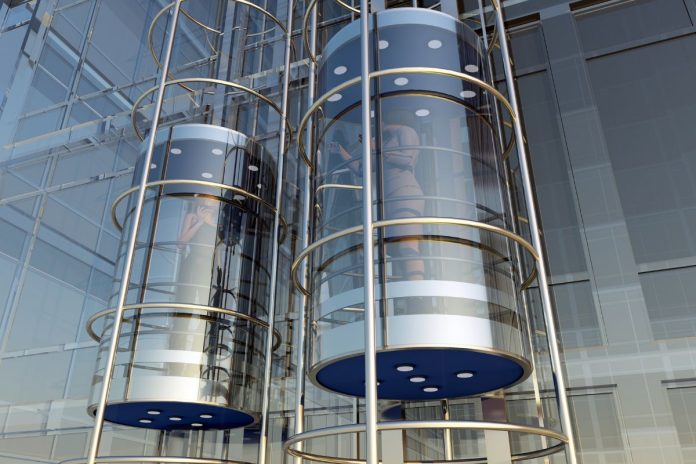In today’s fast-paced world, residential elevators offer convenience and accessibility, revolutionizing the way we navigate our homes. However, safety remains paramount when integrating these modern amenities into our living spaces. This comprehensive guide explores essential strategies and precautions to ensure the utmost safety with residential elevators, providing peace of mind for you and your loved ones.
Understanding Residential Elevators
Residential elevators are cutting-edge mobility solutions designed to enhance accessibility within homes while prioritizing safety. These elevators are equipped with advanced features and technologies to provide smooth and secure vertical transportation, catering to individuals with mobility challenges and homeowners seeking convenience.
The Importance of Safety
Safety is a non-negotiable aspect when it comes to residential elevators. Prioritizing safety not only protects occupants from potential accidents but also safeguards the longevity and functionality of the elevator system. By implementing proactive safety measures, homeowners can enjoy the benefits of residential elevators with confidence and peace of mind.
Key Safety Features
- Emergency Stop Button: One of the primary safety features of residential elevators is the emergency stop button, allowing occupants to halt the elevator in case of an emergency or malfunction.
- Door Interlocks: Door interlocks prevent the elevator from moving if the doors are not securely closed, minimizing the risk of accidents and ensuring passenger safety.
- Overload Sensors: These sensors detect excessive weight or load within the elevator cabin, triggering an alarm and preventing operation until the load is reduced to a safe level.
- Battery Backup: In the event of a power outage, home elevators are equipped with battery backup systems, ensuring uninterrupted operation and safe evacuation if necessary.
Routine Maintenance Practices
Regular maintenance is essential to keep residential elevators in optimal condition and ensure long-term safety and performance. Here are some routine maintenance practices to follow:
- Scheduled Inspections: Schedule periodic inspections by qualified technicians to identify any potential issues and address them promptly.
- Lubrication: Keep moving parts well-lubricated to prevent friction and ensure smooth operation of the elevator components.
- Testing Safety Features: Regularly test emergency stop buttons, door interlocks, and other safety features to verify their functionality and address any issues immediately.
- Cleaning and Sanitization: Maintain cleanliness inside the elevator cabin and ensure proper sanitization to promote a hygienic environment, especially during times of heightened health concerns.
Safety Guidelines for Users
Ensuring safety with residential elevators also involves educating users about best practices and guidelines to follow while using the elevator. Here are some essential safety tips:
- Limit Occupancy: Adhere to the recommended maximum occupancy limit specified by the elevator manufacturer to prevent overcrowding and maintain stability during transit.
- Supervise Children: Always supervise children when using the elevator and teach them how to operate it safely, emphasizing the importance of keeping hands and feet clear of closing doors.
- Avoid Overloading: Avoid exceeding the weight capacity of the elevator to prevent strain on the system and ensure smooth operation.
- Stand Clear of Doors: Remind users to stand clear of the elevator doors while they are closing to prevent entrapment or injury.
- Use Handrails: Encourage occupants to use handrails for added stability, especially when the elevator is in motion.
- Report Malfunctions: Promptly report any signs of malfunction or unusual noises to maintenance personnel to prevent potential accidents or breakdowns.
Enhancing Accessibility
Apart from ensuring safety, Residential elevators are designed to enhance accessibility for individuals with mobility challenges or disabilities. These elevators provide a convenient and dignified way for people to navigate their homes independently, promoting inclusivity and autonomy.
Frequently Asked Questions (FAQs)
What maintenance tasks should be performed regularly?
Routine maintenance tasks for residential elevators include scheduled inspections, lubrication of moving parts, testing safety features, and ensuring cleanliness and sanitization.
How can I ensure the safety of children using the elevator?
To ensure the safety of children, always supervise them while using the elevator, teach them proper operating procedures, and remind them to keep clear of closing doors and avoid leaning on the walls.
What should I do in case of an emergency?
In case of an emergency, such as a power outage or elevator malfunction, use the emergency stop button to halt the elevator and wait for assistance. If necessary, contact emergency services for help.
Are residential elevators suitable for individuals with disabilities?
Yes, Residential elevators are designed to enhance accessibility for individuals with disabilities, providing a safe and convenient way to navigate multi-story homes.
How often should I schedule maintenance for my residential elevator?
It is recommended to schedule maintenance for your residential elevator at least twice a year or as per the manufacturer’s guidelines to ensure optimal safety and performance.
Can I customize my residential elevator to suit my home’s aesthetic?
Yes, residential elevators offer customizable options to blend seamlessly with your home’s décor and architectural style, ensuring both functionality and visual appeal.
Conclusion
In conclusion, prioritizing safety with residential elevators is essential for homeowners seeking to enhance accessibility and convenience within their homes. By understanding key safety features, implementing routine maintenance practices, and educating users about safety guidelines, occupants can enjoy the benefits of residential elevators with confidence and peace of mind.


















